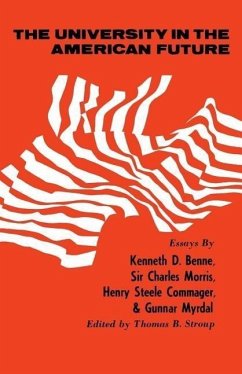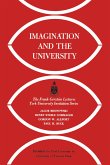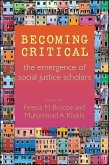In these four notable essays based on Centennial lectures, four eminent scholars analyze the tensions affecting university education today and the forces which will shape the American university of the future. Kenneth D. Benne, director of the Human Relations Center of Boston University, describes the fragmentation which has come to characterize the university in 1965 in three divergent philosophies of university education and calls for the universities to undertake a radical change of their social organization. For, he says, only by restoring the community of learning can the universities exercise their proper leadership in resolving the conflicts and tensions of modern society.The place of the university as a clearing house of ideas and as the training center for new professions and services is set forth by Sir Charles Morris, vice chancellor of the University of Leeds, and by Henry Steele Commager, professor of American Studies at Amherst College.Finally, Gunnar Myrdal of the Institute of International Economic Studies in the University of Stockholm, looking at the probable social and economic trends of the future, sees the expansion of professional, practical, and research training, but warns that the social and moral implications of knowledge cannot be ignored, especially in view of the increasing demands of the developing countries upon the affluent nations.








